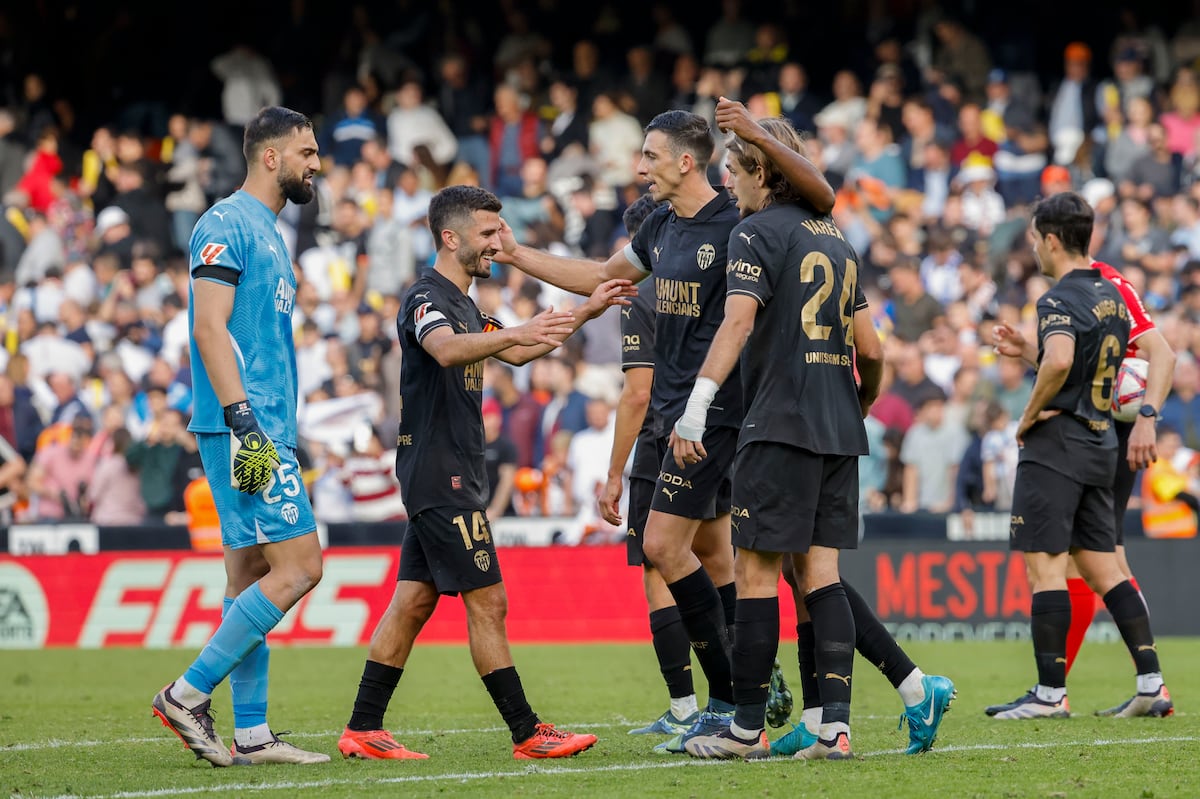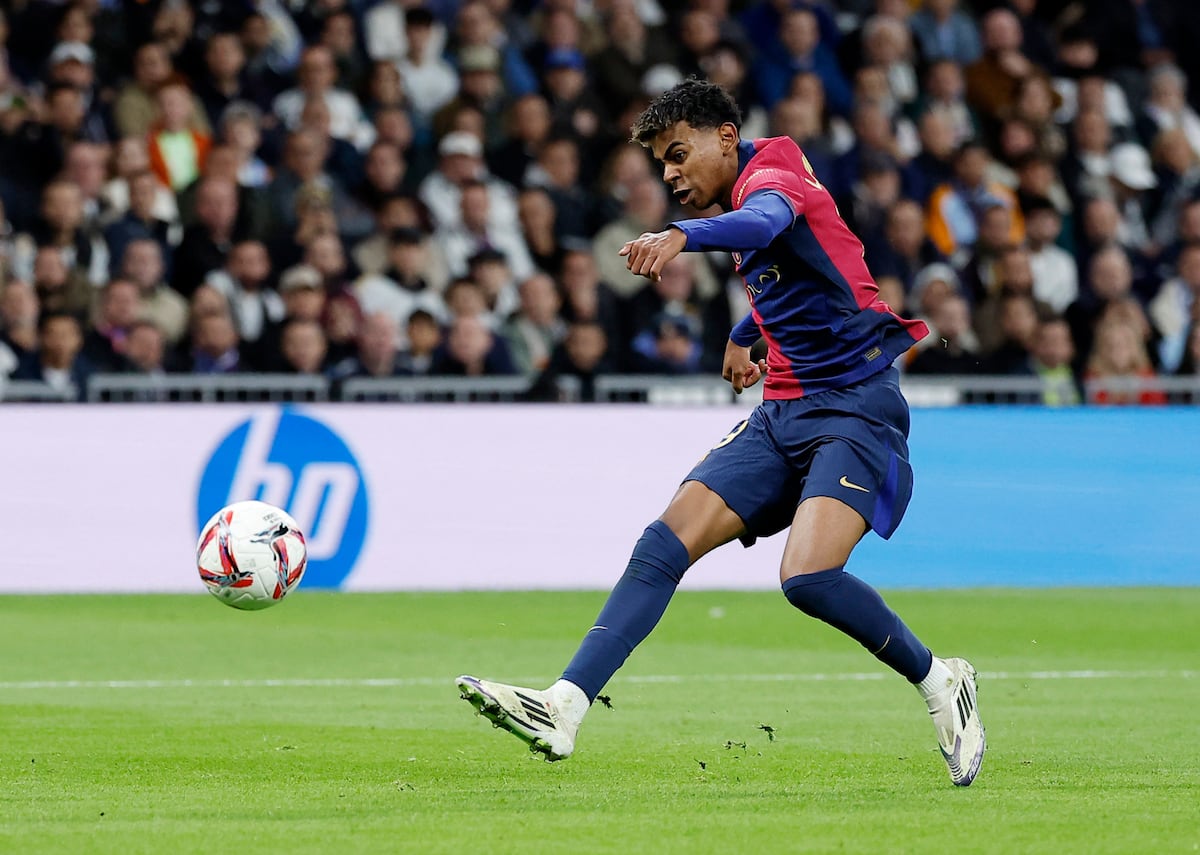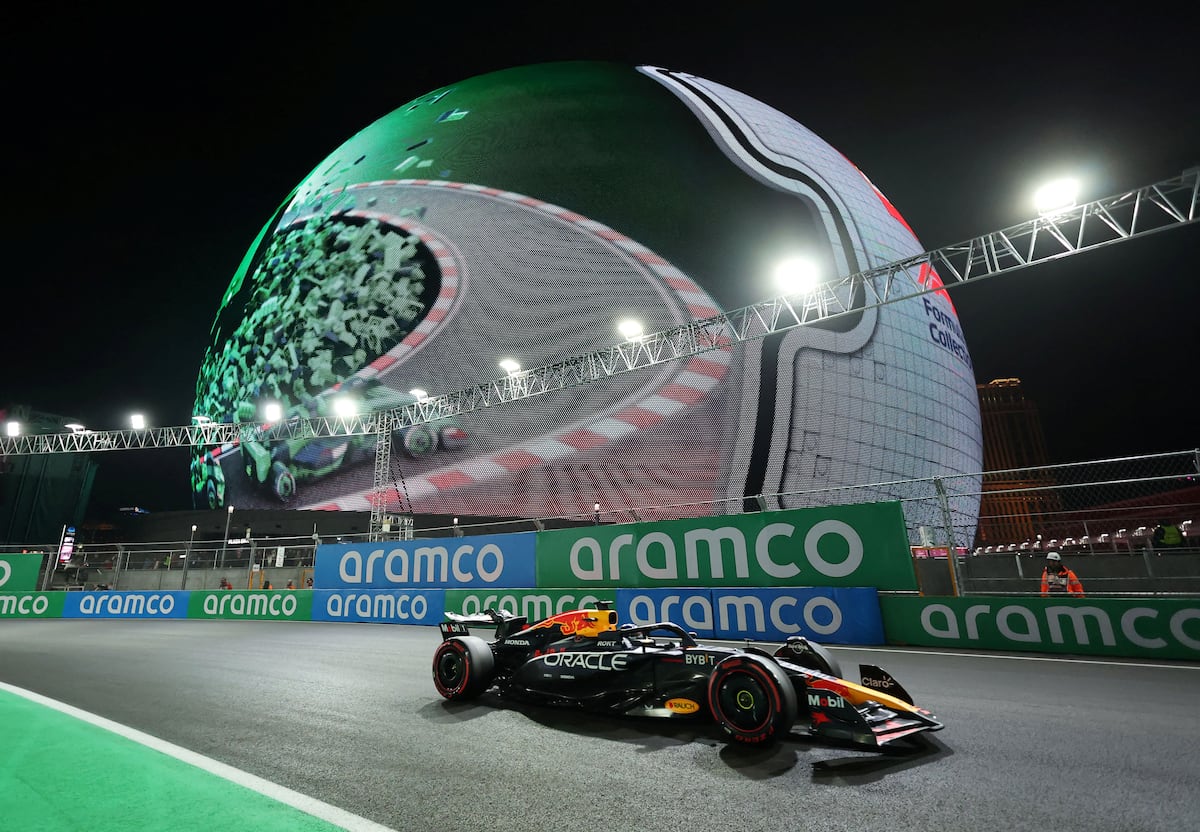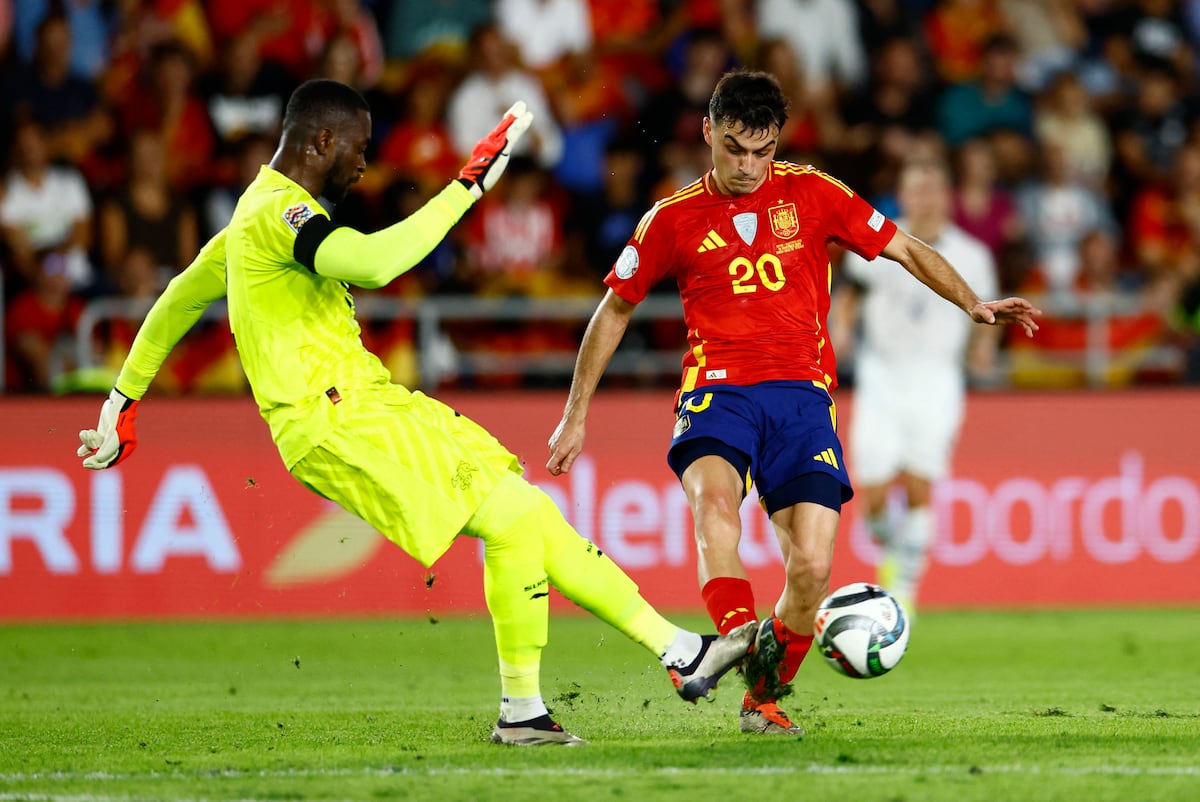Football, after the misfortune, made its way to Mestalla like those children who, a few days ago, on a sunny morning, threw a ball into the mud of Aldaia, one of the towns swept away by the water, and started to play. There is no more. The sun rises again. Life goes on. The ball rolls again. Valencia’s duel in LaLiga lasted three weeks. But it was time to open the doors of Mestalla to resume the competition and the team proved to be up to the task with attitude and even success in an afternoon overloaded with emotions in which Valencia beat Betis (4-2).
4
Giorgi Mamardashvili, José Gayà, Yarek Gasiorowski, César Tárrega, Dimitri Foulquier, Cristhian Mosquera, Javi Guerra (André Almeida, min. 81), Luis Rioja (Fran Pérez, min. 90), Enzo Barrenechea (Hugo Guillamón, min. 74) , Diego López (Germán Valera, min. 73) and Hugo Duro (Dani Gomez, min. 73)
2

Rui Silva, Youssouf Sabaly, Romain Perraud, Marc Bartra, Natan, Sergi Altimira, Aitor Ruibal (Cédric Bakambu, min. 57), Carlos Guirao (Giovani Lo Celso, min. 56), Iker Losada (Chimy Ávila, min. 56) , Abde Ezzalzouli (Juanmi, min. 67) and Vitor Roque (Assane Diao, min. 80)
Goals
1-0 min. 7: César Tárrega. 1-1 min. 13: Hugo Duro. 2-1 min. 49: Hugo Duro. 3-1 min. 52: Hugo Duro. 4-1 min. 55: Diego López. 4-2 min. 65: Chimy Ávila
Referee Ricardo de Burgos Bengoetxea
yellow cards
Enzo Barrenechea (min. 19), Andre Almeida (min. 85), Bakambu (min. 87), Sabaly (min. 89), Gayá (min. 89), César Tárrega (min. 94)
First, we had to pay tribute to the victims of the dana while ‘My Land’, Nino Bravo’s classic, played, and the fans settled in while everything was prepared and the players tried to warm up as if it were a normal day. It wasn’t. Three weeks before, a flood devastated half the province, a liquid stab from west to east that left dozens of dead, thousands of Valencians ruined and cars overturned everywhere.
The presentation, a careful tribute to the victims of the dana and especially to its more than 220 dead, was moving. Football has never been sadder at Mestalla. “The game is the least important thing,” said Joaquín after visiting Alfafar in the morning. But football is also Gordillo’s tears, at his side, seeing first-hand the dimension of the catastrophe. And football, sometimes so full of hatred and anger, is also the tender arm that Marc Bartra puts around the shoulders of Hugo Duro, a teammate next to another, regardless of the colors, during the tribute.
The club organized almost a funeral full of sensitivity and emotion. Roi Ortolá, one of those young people who has shown that they are not made of glass, that they are going to be, brought to Mestalla the song that, excited to see what had happened, he composed at home and, propelled by the wings of social networks , ended up becoming the anthem of the dana. Ortolá, with his raspy voice and a guitar, accompanied by a girl who caressed the cello, shook the Valencian fans while the players wore a huge black crepe next to the gigantic ‘senyera’ that Real Madrid, more gentleman than ever, gave away. to the Valencian clubs after extending it as a sign of respect at the Bernabéu.
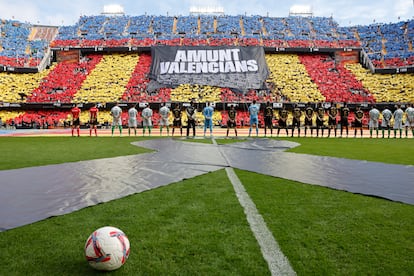
Valencia drew on the symbols of this land that Nino Bravo sang about. And the ‘dolçaina’ and the ‘tabalet’ sounded. And there was also time for a minute of heartbreaking silence. At that point, the entire Mestalla was crying with sadness and emotion. These are hard days that have touched the ‘coret’ of Valencians, a little heart shriveled by misfortune. The Valencian is made of gunpowder and a short fuse. There is no other town capable of celebrating more or getting more angry. Depending on what you play at any given time. But Valencia is also Cañizares’ tender message to all those village teams that have been left without a field where they can kick the ball. Or the accurate and indignant speech of Santiago Posteguillo to his legion of readers after feeling abandoned in Paiporta, like Ferran Torrent, another glory of Valencian letters, who suffered the blow of the dana in Sedaví. The Valencians are also the spectators who on Thursday night cried when, after the play, Lolita, colossal on the stage of the Olympia Theater a while before, approached the edge of the stage and, with her heart in her hand, gave a tremulous and heartfelt speech that moved everyone.
This is the life of Valencians, who leave home crying every day to go to work while they think, anguished, how to help those poor people whose lives have stopped surrounded by mud and rot. And on Saturday they leave the house again to eat ‘sobaquillo’ at Mestalla, get excited again and see what the hell has in store for this anemic Valencia that travels through LaLiga from the bottom of the standings. How can such a big and brave town have such a small team. And when no one expects anything anymore, the goals arrive. The first from César Tárrega, a boy from Aldaia, one of the wounded towns. And in the second half, 45 minutes of apotheosis and three more goals. This Valencia in mourning, completely in black, manages to seal a victory, the second of the season. Meanwhile, the audience, now totally spontaneous and without a script, sang the anthem of their land a cappella. A tiny outbreak of joy in Valencia.

